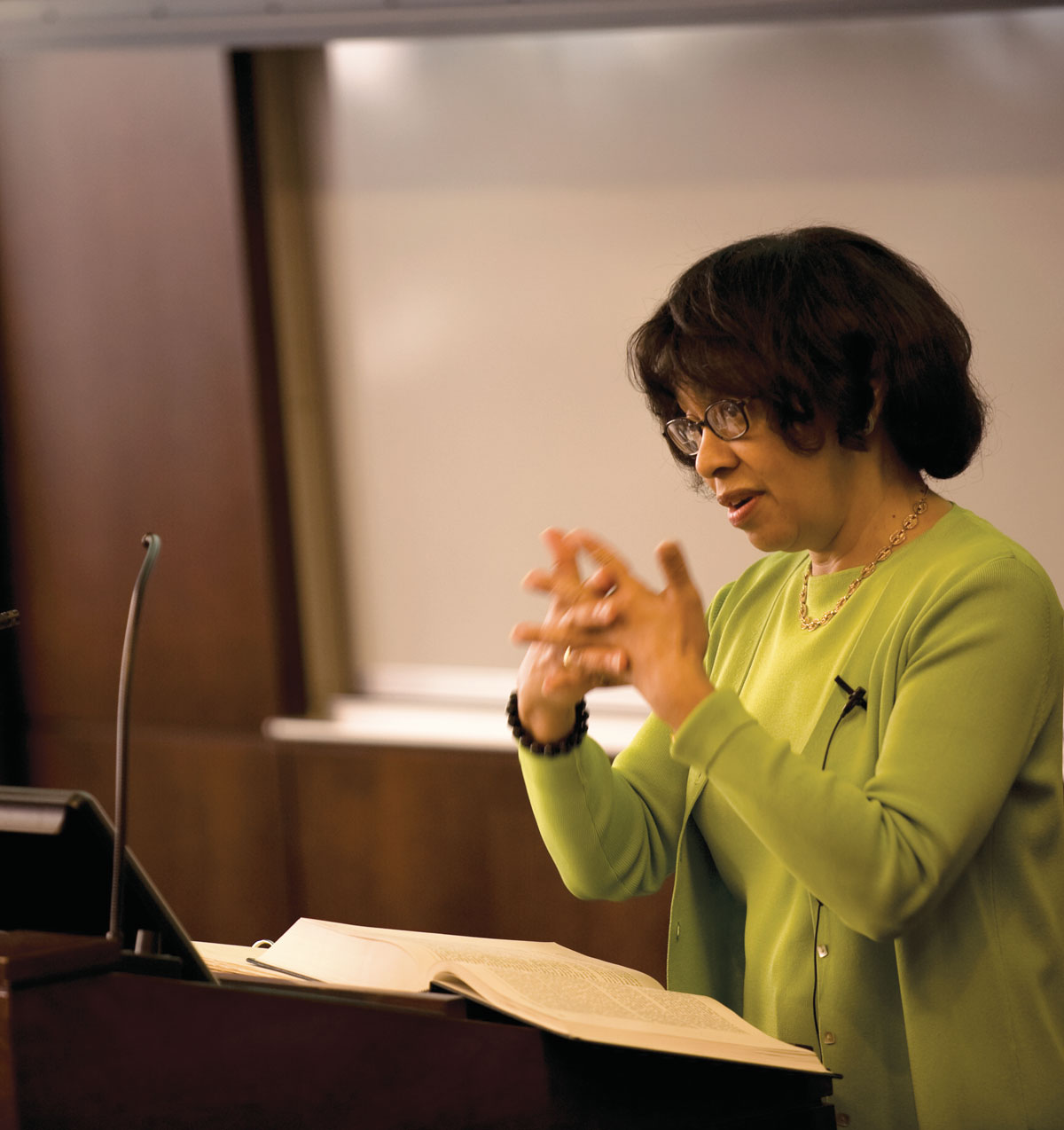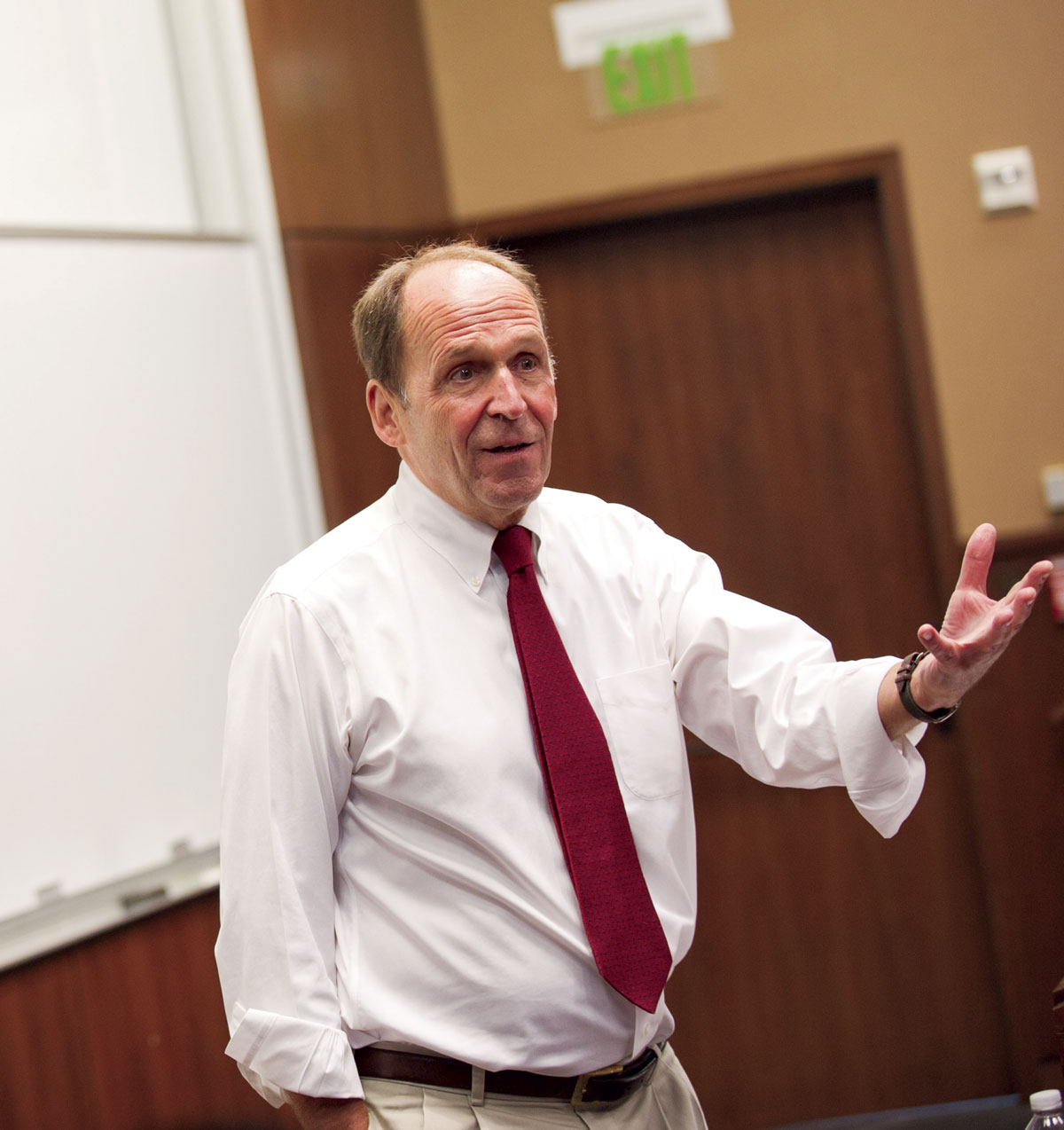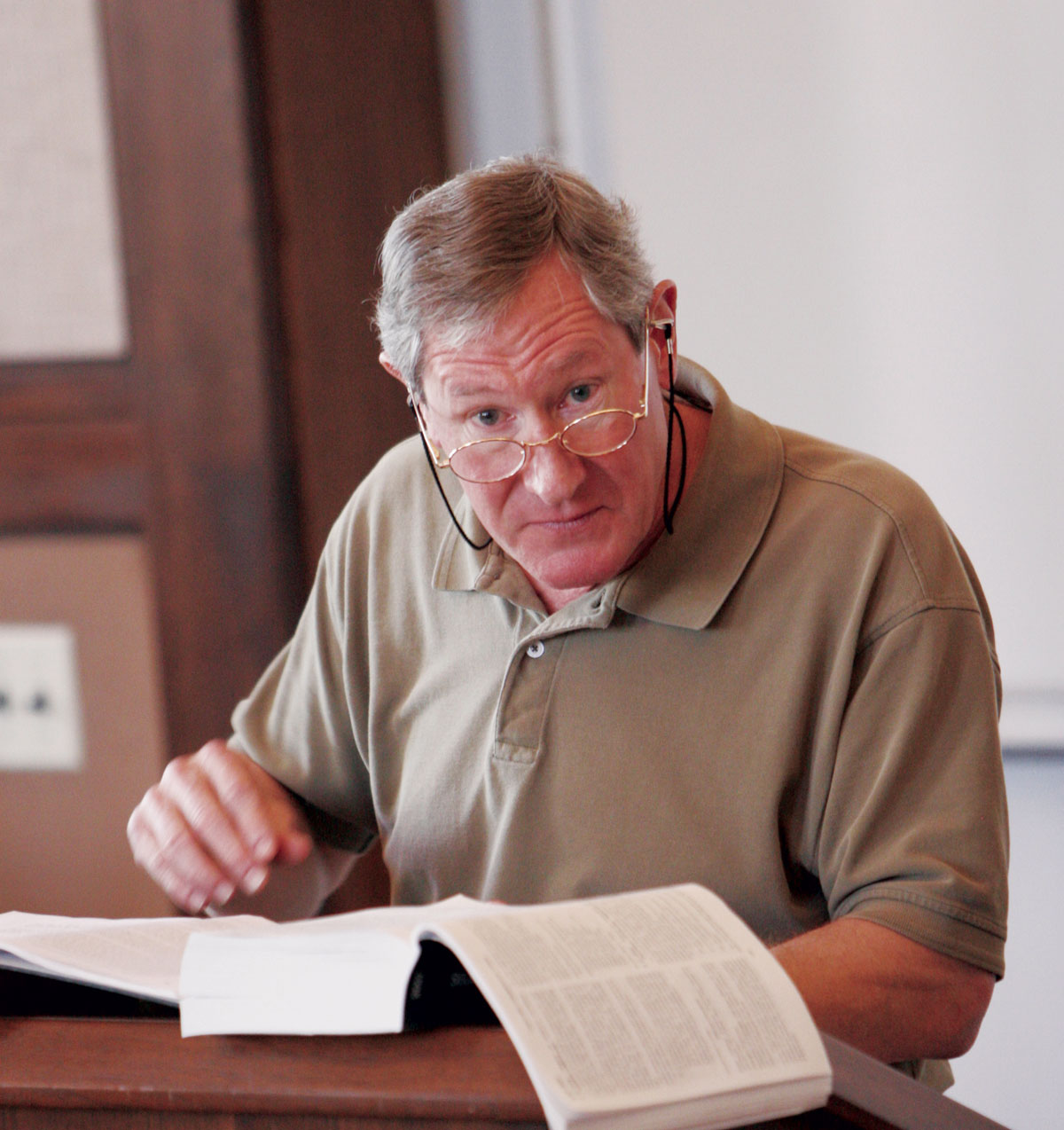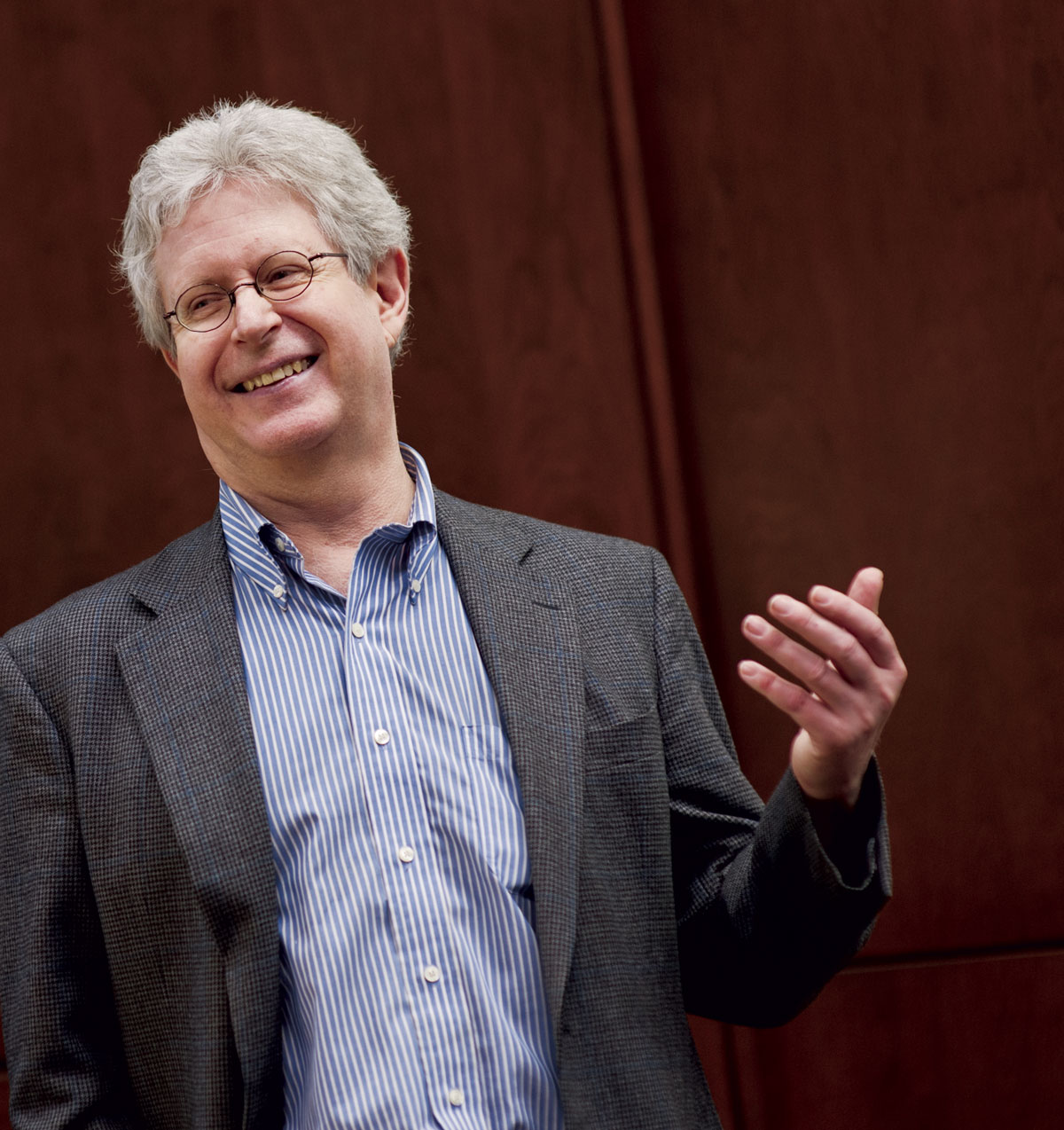Four Distinguished Faculty Members Retired from the Law School in 2021
Four distinguished faculty members retired from the University of Pennsylvania Carey Law School at the end of the 2021 academic year: William A. Schnader Professor of Law Regina Austin L’73; David Berger Professor for the Administration of Justice Stephen B. Burbank; Charles A. Heimbold, Jr. Professor of Law Charles W. Mooney Jr.; and John J. O’Brien Professor of Law & Professor of Philosophy Stephen R. Perry.
Each of these professors has contributed immensely to the Law School community during their time; three have served for over 30 years. Their work embodies a wealth of scholarly and experiential expertise that has greatly enhanced the academic programming, education, and mentorship of our students, while their achievements in research and scholarship stand as valuable additions to the legal landscape.

Regina Austin L’73, William A. Schnader Professor of Law

Regina Austin L’73, William A. Schnader Professor of Law



Stephen B. Burbank, David Berger Professor for the Administration of Justice

Stephen B. Burbank, David Berger Professor for the Administration of Justice
Regina Austin L’73
William A. Schnader
Professor of Law
Austin began teaching at the Law School as an Assistant Professor in 1977. Her scholarship focuses on the impact of law on cultural conflicts arising from race, gender, and class inequality, with much of it revolving around the critical analysis of ethnographies and law-genre documentary films and photography.
“To be an academic is to be a perpetual student,” said Austin. “Thus, I expect my education to continue in retirement. By both doing and writing, I hope to learn more about visual legal advocacy, critical participatory qualitative research in the law, and the ethical implications of both.”
Austin was the Director of the pathbreaking Penn Program on Documentaries & the Law, which hosts screenings of law-genre documentaries, maintains a national archive of clemency videos, and produces mitigation videos on behalf of young, first-time defendants in cooperation with the Defender Association of Philadelphia. Additionally, Austin produced and directed the documentary film “Second Looks, Second Chances for Pennsylvania Lifers: Commutation by the Numbers” and has taught a visual legal advocacy seminar that allows students to create social justice advocacy videos to support various public interest and grassroots organizations and the people and causes they serve.
“As a Black female academic with roots in the working class who came of age in the late 1960s and early 1970s, I was never sure that I would survive long enough to retire from Penn Law,” said Austin. “So much has changed over the intervening 40 or so years since I joined the faculty in 1977. Throughout, so many people made my longevity possible: senior colleagues who watched my back when I made trouble; outstanding students whose commitment to racial, gender, and economic justice was reflected in their activities at the Law School and their professional pursuits thereafter; and administrative assistants (nee secretaries), housekeepers, and security guards who offered me the support of a community of smart and empathic women. To and for all of them, I express my sincerest gratitude.”
Stephen B. Burbank
David Berger Professor for the Administration of Justice
Burbank is one of the most prolific legal scholars of his generation, authoring or co-authoring four books and over one hundred law review articles and book chapters that span a vast breadth of study and methodology, including definitive works on federal court rulemaking, interjurisdictional preclusion, litigation sanctions, international civil litigation, litigation retrenchment, and judicial independence and accountability. He was also among the first wave of scholars to embrace rigorous interdisciplinary approaches to legal scholarship, including historical, empirical, and comparative methods.
“As those who know me will confirm, I am not the retiring type,” said Burbank. “It is not just that I am accustomed to working hard. The scholarly work I have been privileged to do for 46 years has been interesting, challenging, and, sometimes, important. The students I have been privileged to teach have been curious, collegial, and a source of constant refreshment. The other scholars I have been privileged to call my colleagues have been generous with their time, inspiring in their diversity of approach, and a source of enduring friendships.”
Burbank first worked as General Counsel for the University in 1975 before beginning as a Professor of Law in 1979. He’s also held the position of Associate Dean (1983–1985) and Acting Dean (1995), as well as an appointment by the Speaker of the U.S. House of Representatives to the National Commission on Judicial Discipline and Removal (he was a principal author of the Commission’s 1993 report). He served as Special Master/System Arbitrator of the National Football League from 2002 to 2021.
In February, the University of Pennsylvania Law Review and the University of Pennsylvania Journal of Constitutional Law presented a festschrift honoring Professor Burbank’s scholarship, bringing together leading scholars in civil procedure and judicial administration along with renowned jurists, colleagues, and former students in celebration, including United States Senator and former Law School professor Elizabeth Warren.
“I have smiled every day as I walked into the Law School, reminded by its halls of my good fortune in having chosen an academic career, and by security guards who are my friends of what makes Penn Law such a special community,” said Burbank. “The fact that I can continue to teach and write tempers the bitter with the sweet, as do memories of a professional life that could not have been more satisfying.”

Charles W. Mooney Jr., Charles A. Heimbold, Jr. Professor of Law

Charles W. Mooney Jr., Charles A. Heimbold, Jr. Professor of Law



Stephen R. Perry, John J. O’Brien Professor of Law & Professor of Philosophy; Director, Institute of Law & Philosophy

Stephen R. Perry, John J. O’Brien Professor of Law & Professor of Philosophy; Director, Institute of Law & Philosophy
Charles W. Mooney Jr.
Charles A. Heimbold, Jr.
Professor of Law
Charles Mooney Jr. is a leading legal scholar in the fields of commercial law and bankruptcy law. His book Security Interests in Personal Property is a widely adopted text used in law schools around the United States. An Oklahoma native, Mooney was honored for his contributions to the uniform law process by the Oklahoma City School of Law and was awarded the Distinguished Service Award by the American College of Commercial Finance Lawyers.
He also served as U.S. Delegate at the Diplomatic Conference for the Cape Town Convention on International Interests in Mobile Equipment and the Aircraft Protocol and for the Diplomatic Conference for the UNIDROIT (Geneva) Convention on Intermediated Securities. Mooney also served as a Co-Reporter for the Drafting Committee for the Revision of UCC Article 9 (Secured Transactions), as the ABA Liaison-Advisor to the Permanent Editorial Board for the UCC, and as a member of Council and Chair of the Committee on UCC of the ABA Business Law Section.
“Thirty-five years ago, on July 1, 1986, I left the full-time practice of law after 14 years of practice to join the Penn Law faculty,” said Mooney. “That was the best decision of my professional life! It has been a great ride. Now I will have a bit more time to enjoy with my wife, Aiko, some other favorite activities including biking, hiking, and birding.”
Mooney began teaching at Penn Law as an Associate Professor in 1986 and has held various leadership positions at the Law School, including Interim Dean (1999–2000), Associate Dean for Academic Affairs (1998–2000), Associate Dean (2008–2009), as well as a Chair on the Faculty Senate of the University in 2004.
“For the next few years I also will be occupied with several law reform projects,” said Mooney. “On the domestic front I am a member of an ALI–ULC drafting committee to modernize the Uniform Commercial Code to address emerging technologies, including a new UCC article dealing with digital assets. Also on the U.S. side I am co-chairing an ABA Task Force to examine problems and propose solutions for reforming the financial infrastructure for the holding of securities and other financial assets. Internationally, I am participating in a UNIDROIT project to develop private-law principles for digital assets, which is proceeding in parallel fashion with the UCC project. I also will be representing an NGO in an UNCITRAL Working Group addressing choice-of-law rules for insolvency law in the international, cross-border context. I look forward to these new chapters in my personal and professional life with fond memories and gratitude for my time at Penn Law.”
Stephen R. Perry
John J. O’Brien Professor of Law & Professor of Philosophy; Director, Institute of Law & Philosophy
Stephen Perry is a prominent legal philosopher and legal theorist. Before taking up the position of John J. O’Brien Professor of Law and Professor of Philosophy at Penn Law in 2005, he taught at McGill University and was later the Fiorello La Guardia Professor of Law at NYU Law School. He has published numerous well-regarded articles on jurisprudence, political philosophy, and theoretical aspects of the law of torts. He is particularly interested in the methodology of jurisprudence, the general nature of authority and obligation in law, the role of corrective justice in tort law, the morality of risk imposition, and the relationship between legal and moral responsibility.
“Penn Law has been my professional and academic home since I first joined the faculty in 1996,” said Perry. “I discovered just how much of a home it is for me when I left for a couple of years to become a faculty member at another law school. It didn’t take long for me to realize that Penn is where I belonged, and when the Law School invited me to return in 2005, I happily accepted.”
A sought-after lecturer and panelist, Perry has presented papers in many different prestigious venues, including the Analytic Legal Philosophy Conference and the Colloquium in Legal, Political and Social Philosophy at NYU Law School, and he has been a Visiting Fellow at the European University Institute. In recent years he has been a Distinguished Visiting Scholar at King’s College, London, and he has taught an intensive course on political authority at the Faculty of Law at Tel Aviv University as well as at Zengzhou University Law School in China.
“It has been an honor and a pleasure to work with the distinguished scholars who have been my colleagues, and to teach some of the best law students in the country,” said Perry. “This year I am retiring from the standing faculty, but I will not be going very far away. I will still be teaching here for the next couple of years, and I will still be relying on the excellent resources of the library as I continue to pursue my scholarly research.”